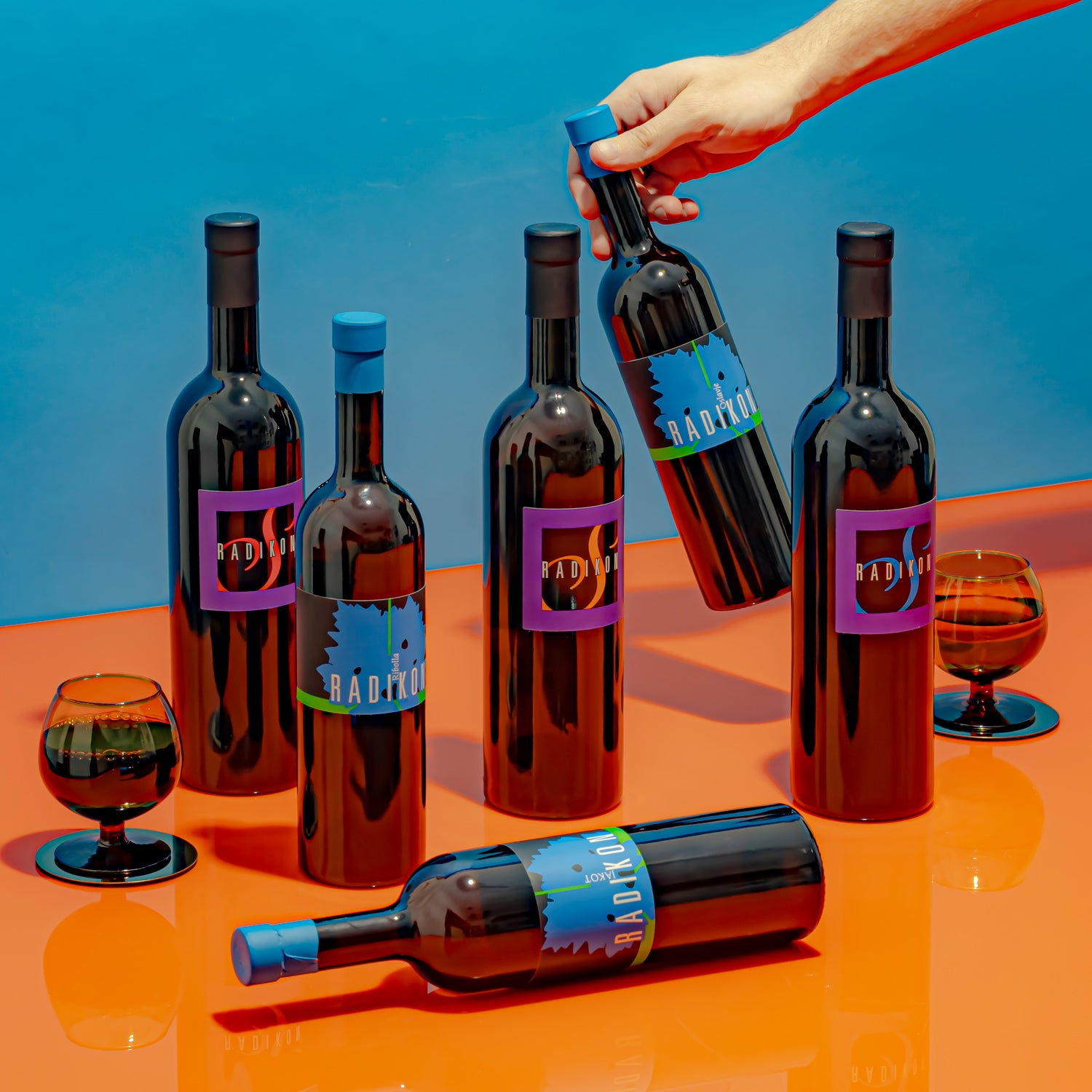Radikon

Truly Pioneering
Radikon might be small, but in the natural wine world, it’s very much a revered giant. The Radikon family was truly pioneering and set a benchmark for natural and skin contact wines globally back in 1995 when then wine-maker, Stanislao Radikon, recognised the region’s existing pale and insipid expression of local indigenous grape, Ribolla Gialla, was not its truest or most interesting.
The vineyard straddles Slovenia and Italy’s border north-east of Italy’s Friuili-Venezia Giulia region. The block is 18 hectares and sloping, it’s hard to work but it seems the quality of the grapes is worth the labour.
The vineyard straddles Slovenia and Italy’s border north-east of Italy’s Friuili-Venezia Giulia region. The block is 18 hectares and sloping, it’s hard to work but it seems the quality of the grapes is worth the labour.
A Benchmark For Natural and Skin Contact Wines
Radikon might be small, but in the natural wine world, it’s very much a revered giant. The Radikon family was truly pioneering and set a benchmark for natural and skin contact wines globally back in 1995 when then wine-maker, Stanislao Radikon, recognised the region’s existing pale and insipid expression of local indigenous grape, Ribolla Gialla, was not its truest or most interesting.
The vineyard straddles Slovenia and Italy’s border north-east of Italy’s Friuili-Venezia Giulia region. The block is 18 hectares and sloping, it’s hard to work but it seems the quality of the grapes is worth the labour. The wines are uncompromisingly natural, and show complete respect for the soil and surrounding environment. Honouring a sense of place has allowed the family to completely abandon all chemical additives and reduce any additional treatments. The grapes are harvested by hand at optimal ripeness, and the yield is tiny (4-5 bunches per vine).
The vineyard straddles Slovenia and Italy’s border north-east of Italy’s Friuili-Venezia Giulia region. The block is 18 hectares and sloping, it’s hard to work but it seems the quality of the grapes is worth the labour. The wines are uncompromisingly natural, and show complete respect for the soil and surrounding environment. Honouring a sense of place has allowed the family to completely abandon all chemical additives and reduce any additional treatments. The grapes are harvested by hand at optimal ripeness, and the yield is tiny (4-5 bunches per vine).
In the winery, the grapes are traditionally destemmed and left on their skins a long time before being aged in oak barriques and again in bottle, before release. That’s the way wine always has been made in neighbouring Slovenia, but the beautiful, textural, tannic, golden-hued white wine that results is one the rest of the world has only recently become enamoured with. Now known famously as orange wine, it’s a style synonymous with Radikon.
Saša started experimenting with this traditional method over the past decade creating the S Line. The grapes have less time on skins (days versus months) and less time aged in oak (just over a year versus five years). The result is a more fruit-forward and utterly guzzle-able drop with enough tannin structure to keep you pining for more.